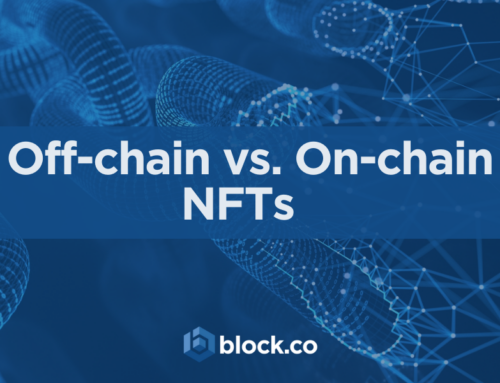Blockchain Increasingly Used to Mitigate Fraud Risk Issues

Fraud can be a devastating experience for victims and organizations alike, and according to the 2018 Report of the Nations on occupational fraud and abuse it costs businesses and government infrastructures over $7 billion in financial losses, fines, and reputation. The report only takes into consideration asset misappropriation, corruption, and financial statement fraud in the occupational area. If we take into account other types of fraudulent activities like certification, credential, and identity fraud in healthcare, supply chain logistics, insurance, public sector, the military industry, and so forth, the overall figure is expected to be much higher.
In June 2018, the US Department of Health and Human Services announced “the largest ever healthcare fraud enforcement action involving 601 charged defendants across 58 federal districts, including 165 doctors, nurses and other licensed medical professionals for their alleged participation in health care fraud schemes.” The investigation lasted roughly 8 years and more than $2 billion in false billings were lost. Always in the US in the same year, local fraudulent doctor Dr. Jorge Zamora-Quezada was found guilty in Texas, of patient deaths and sexual misconduct that affected about 3000 people. He and others conspired to fraudulently diagnose patients with degenerative diseases in order to prescribe chemotherapy and other toxic treatments. He used the proceeds from the frauds to buy luxury goods, private jets, and vehicles. Besides the health care fraud, he was also charged with conspiracy to commit money laundering. The financial loss was estimated to be in the range of $50M but the damage to the victims is certainly immeasurable.
A striking example in the public sector is that of former Malaysian Prime Minister Najib Razak who, after 5 years of investigation, was arrested in 2018 for his involvement in the so-called 1MDB (1Malaysia Development Berhad) fund scandal. He was charged with corruption and criminal breach of trust in connection to the 1MDB and he will face up to 20 years of jail and expensive fines. After a couple of months, he was also found guilty of money laundering in connection to hundreds of millions of dollars transferred to his personal account. The United States Justice Department claims that “American financial institutions were used to launder at least $4.5 billion of the fund and used by Mr. Najib, his family, and associates”.
In banking, the Indian Punjab National Bank was a victim of fraud by the so-called “jeweler of the stars” Nirav Modi who, together with other jewelers, supposedly had conspired with two of the bank staff to illegally obtain nearly $43 million. PNB later revealed the amount involved in the fraud was just under $2billion. The case was resolved in 2018 after 7 years of investigation.
Supply chain logistics is one of the sectors most affected by fraud due to its vast complexity and the extensive network of third parties across the globe that contribute to its vulnerability to misconduct. According to the Association of Certified Fraud Examiners (ACFE), “83.5 percent of fraud cases it surveyed in 2016 featured asset misappropriation schemes, which include fraudulent billing and disbursement schemes in the supply chain”.
Notoriously, fraud has the biggest impact on the food supply chain and famous is the “Horsegate meat scandal” that affected the UK 7 years ago. Yet, there’s no stopping to the number of food fraud cases worldwide and it is reported that as much as 10 percent of all the food we consume could be adulterated. Earlier this year a joint operation between Europol and Interpol to tackle fake food seized €100m worth of dangerous food and drink and made 672 arrests across 78 countries.
According to the Global Forensic Data Analytics Survey 2018, blockchain and distributed ledgers account for 32% of emerging technologies already or likely to be adopted in the future to face fraud risk issues in different areas showing how much “digital transformation and technological advancement offer opportunities for enhanced risk mitigation”.
We mentioned in a previous blog post how the loss, damage, and falsification of documents in educational institutions is quite a common basis for litigation, which results in financial costs and wasted time. Up to date, tens of thousands of certificates have already been issued by the University of Nicosia via Block.co. Along with educational credentials, Block.co can help identify and manage risk assessment related to fraud issues in all industries from insurance, cybersecurity, copyrights, and intellectual property to healthcare and law enforcement sectors.
Blockchain is by definition an anti-fraud tool and the solution offered provides a secure, reliable, and immutable system that allows to contain fraud-related costs and verify credential and all types of certification authenticity in no time.
If you liked this article, why don’t you have a look at our Efficiencies and Cost-Savings Achieved with Blockchain Technology in the Public Sector article? Show your appreciation by clapping on our articles!
If your brand is ready to take the step into web 3.0 and NFT marketing, to optimize engagement with your audience in innovative ways, then click the button below to get your Free Trial, a limited number of Free NFTs, and a Free Consultation call from our team!
For more info, contact Block.co directly or email at enquiries@block.co.
Tel +357 70007828
Get the latest from Block.co, like and follow us on social media:







